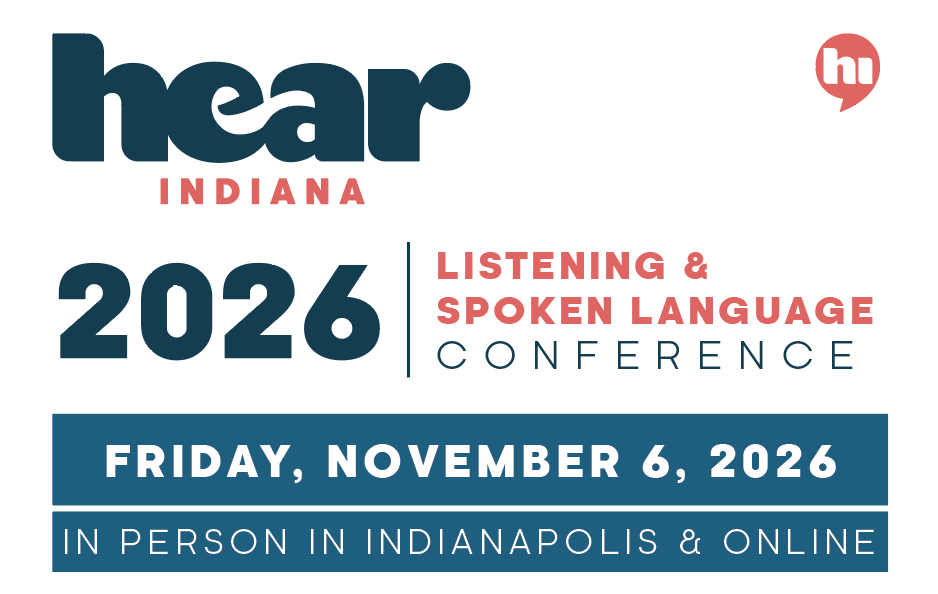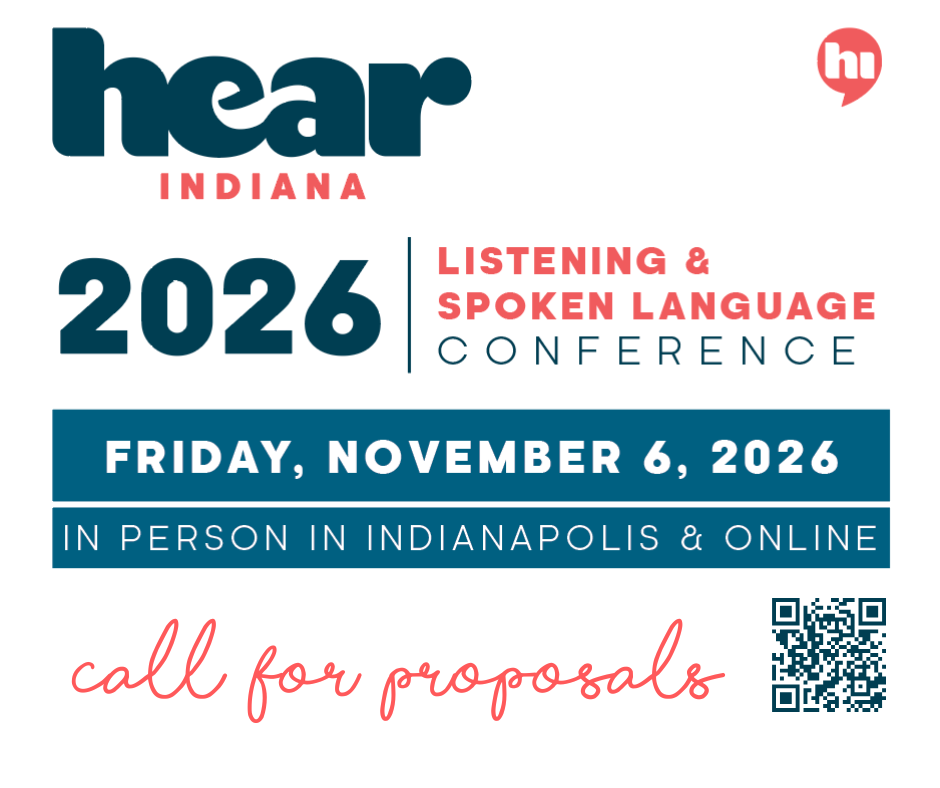[gtranslate]

Join Hear Indiana for the 48th Annual Listening and Spoken Language Conference. Each year, we bring together parents of children with hearing loss, adults who are deaf or hard of hearing, and professionals in the fields of hearing health and education with a shared mission of enhancing the lives of individuals with hearing loss. With a focus on listening and spoken language, this conference draws attendees seeking to expand their knowledge base and to network with advocates, families, professionals, and community leaders. This is an outstanding opportunity to gain expertise in hearing technologies, spoken language development, and clinical applications.
The 48th annual Hear Indiana Listening and Spoken Language Conference will take place in person on Friday, November 6th, 2026 at the Easterseals Crossroads Building at 4740 Kingsway Drive, Indianapolis, IN 46205, and on demand throughout the month of November. 
Our Call for Proposals is open! Please submit your proposal by March 20th, 2026 for consideration in our 2026 conference.
SUMBIT A PROPOSAL